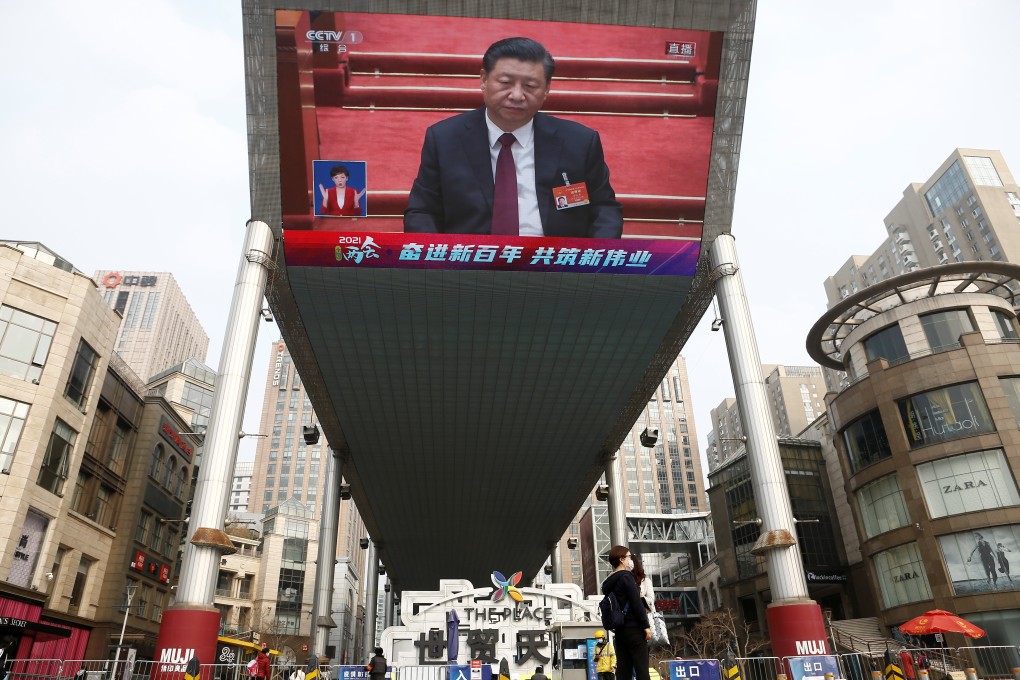After China’s ‘two sessions’, Xi Jinping affirms national goals for innovation, Big Tech, and the environment
- Following the approval of a new five-year plan, Xi Jinping again emphasised the need for the ‘healthy development’ of Big Tech platforms
- A day later, a party-affiliated journal republished a 2018 speech by Xi that called for developing cutting-edge tech like AI, blockchain and quantum computing

Days after China’s top legislature approved the the latest five-year plan. President Xi Jinping is making sure that cadres support the country’s efforts to become a self-sufficient technology leader, while cracking down on the excesses of Big Tech.
“Areas including advanced chips, basic algorithms and materials are still at an extruding choke point,” Xi said in the speech he delivered nearly three years ago. “The condition of key core technologies inferior to others hasn’t been transformed.”
The republication of the speech comes a day after Xi chaired a meeting of the Communist Party’s Central Financial and Economic Affairs Commission, where he reiterated the necessity of “promoting the healthy development” of China’s platform economy, an umbrella term that encompasses most of China’s internet giants, including Tencent Honldings, JD.com, Meituan, Didi Chuxing, Pinduoduo, ByteDance and Alibaba Group Holding, the parent company of the South China Morning Post.
Monday’s comments signalled a continued focus on the development of domestic platforms. The country has ramped up antitrust investigations in recent months in a bid to curb the influence of large tech firms in the economy.
Xi also used the meeting to call attention to the country’s environmental goals. The latest five-year plan aims to have China reach peak carbon output by 2030 and carbon neutrality by 2060.